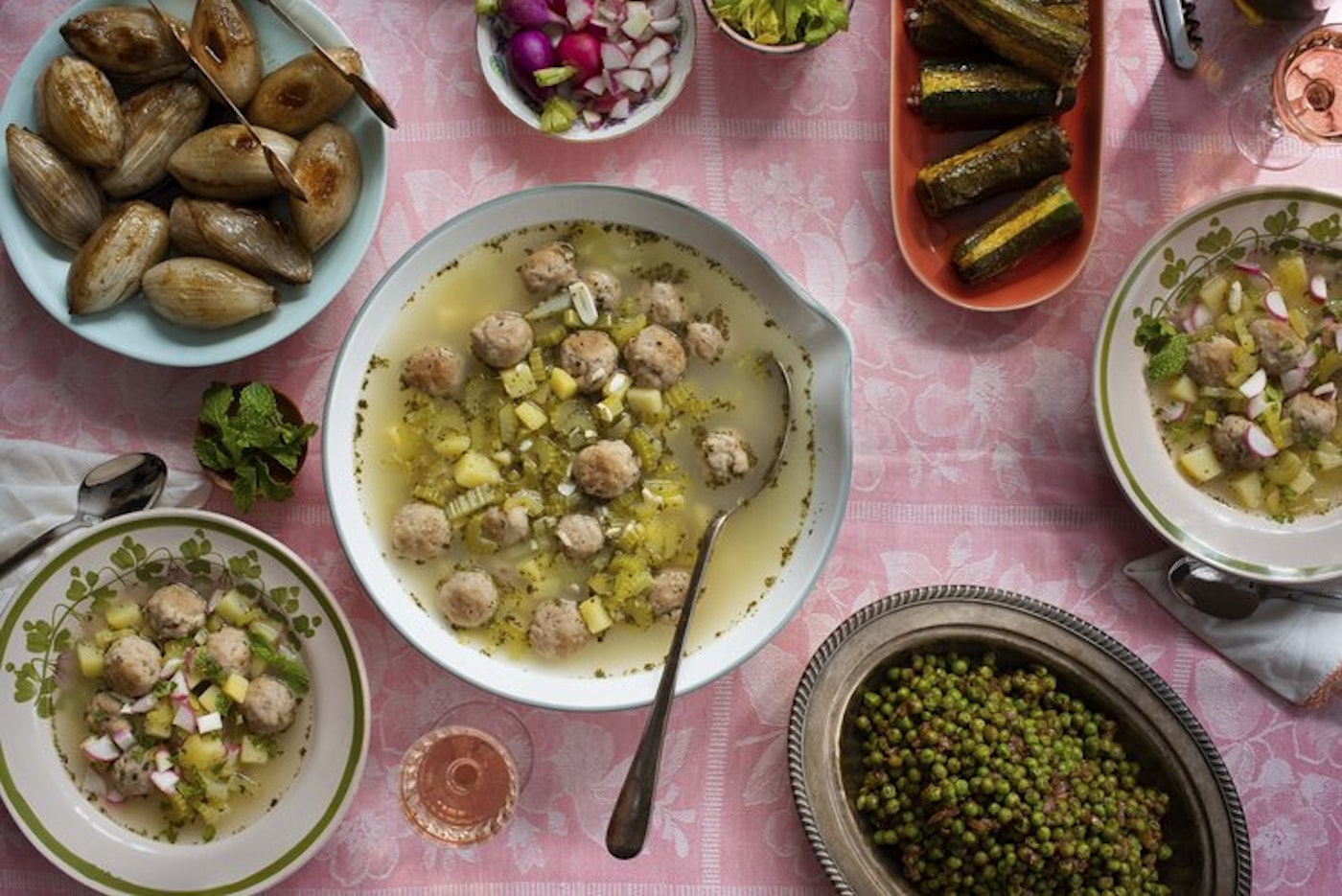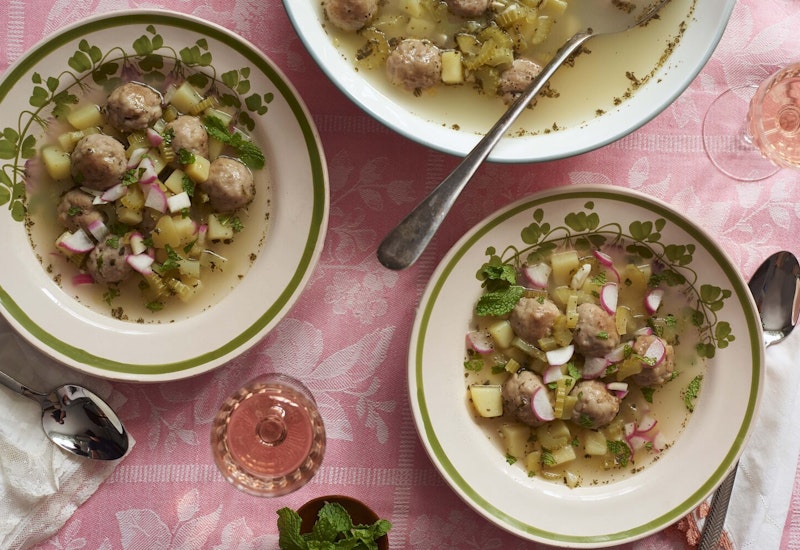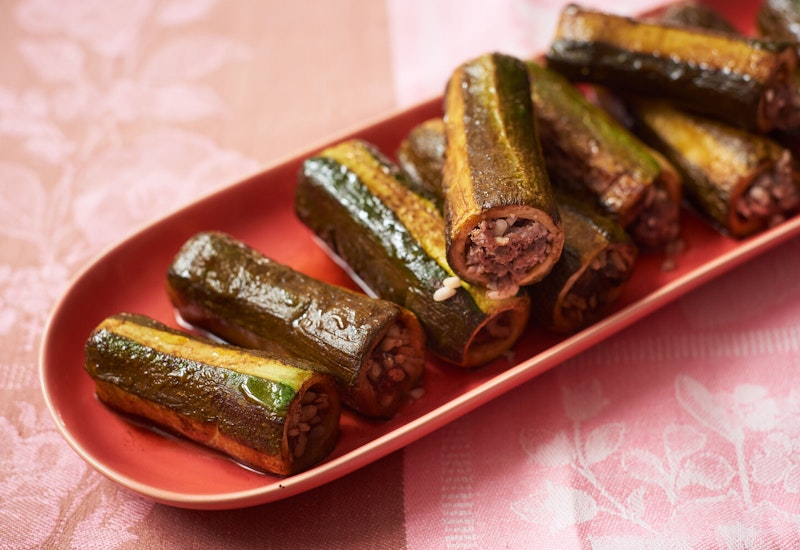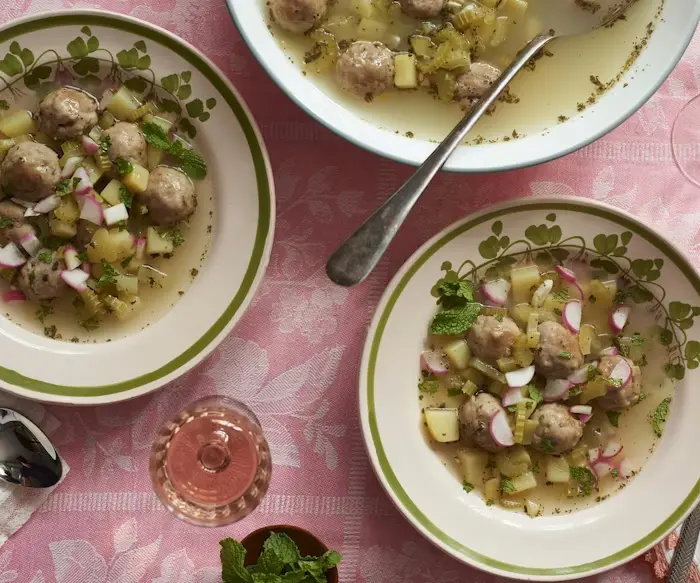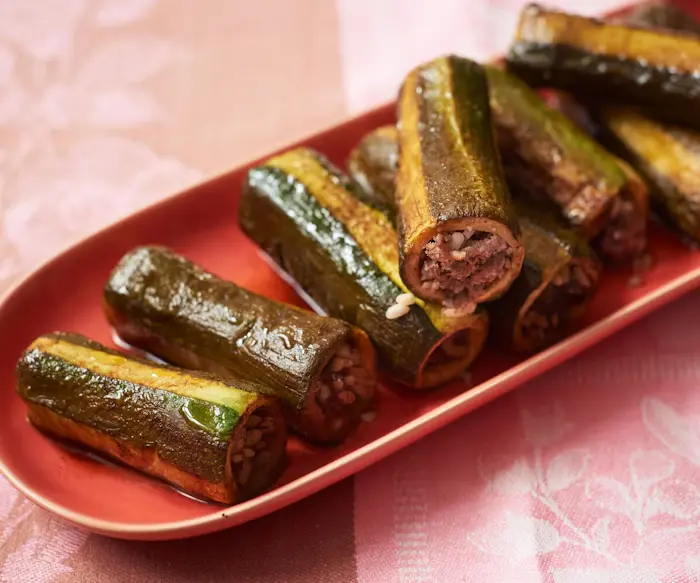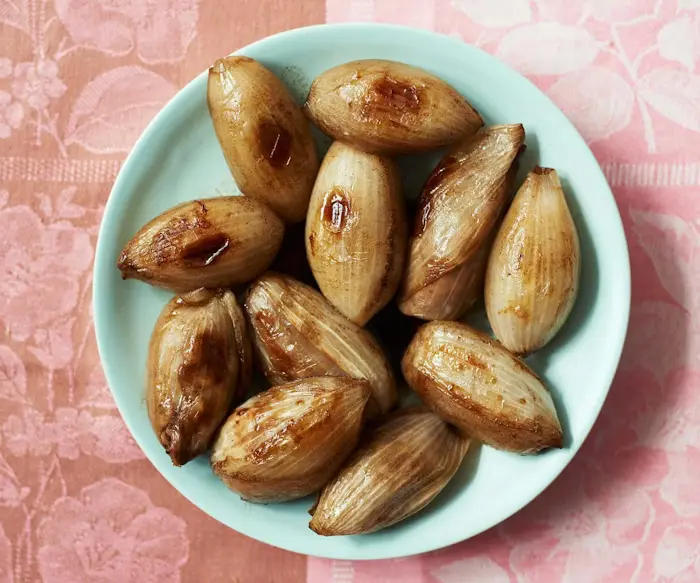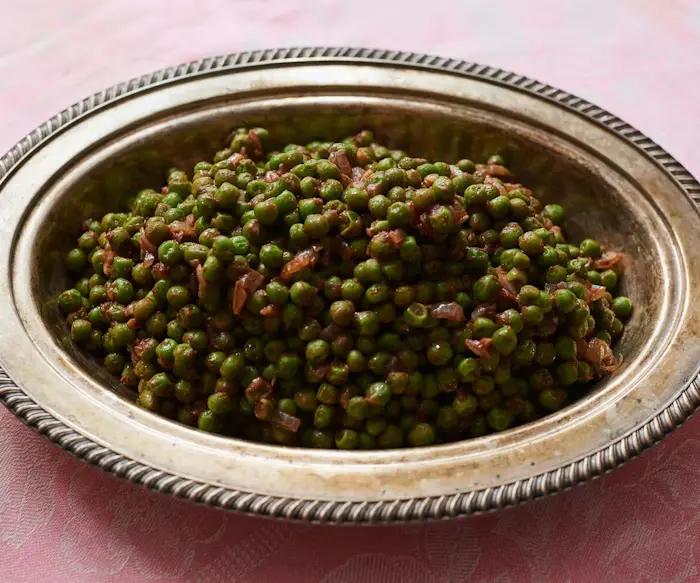“I make it my business to stop by my parents' [home] every Friday afternoon to say Shabbat shalom with my kids,” Nina Dahan explains. During the pandemic, “We’re just doing it in the backyard.” Those visits are also when Nina gets her Lebanese hamod fix, a lemony potato soup made with celery and garlic that’s served over rice and, in her family, alongside peas cooked with allspice and onions.
Hamod, also spelled hamud, is popular among Iraqi and Syrian Jewish families as well, though its style and preparation varies, some families prepare it as a soup, while others eat it as a sauce with rice. The rendition in Nina’s family comes from Beirut by way of London.
When Nina was a baby in 1970 — five years before a civil war broke out and many of the country’s Jews fled — her family left for Europe for her father Marco’s job. They moved to Geneva and later to London.
Vicky was still finding her way in the kitchen when they arrived in London and getting accustomed to the goods sold in English markets. “She basically taught herself how to cook from what she knew,” Nina explains. Her mother used cookbooks and made short long distance phone calls home. “You had to speak very quickly because they [were] charging you crazy amounts of money,” she remembers.
Vicky’s culinary education and Nina’s, continued when Nina’s grandmothers Farha and Sarieh would visit from Israel where part of the family moved. “We had no family in England and we were totally alone. They would come live with us for months, three or four months at a time, in England. Growing up as a kid, that was my family,” Nina recalls.
It was Farha, Vicky’s mother, who taught her daughter how to make the hamod initially. But, Sarieh made a version as well and taught Nina to make the kibbeh, or meatballs with rice, that are sometimes added to the dish in the family. The two renditions of hamod melded, Nina says, and were adapted by Vicky to work with what was available in supermarkets in London in the 1970s and early 1980s. Sometimes zucchini was added, other times, Swiss chard. Vicky doesn’t call her cooking Lebanese, Nina explains, rather she makes classic recipes filtered through an English lens.
When it came to mahshi, or stuffed vegetables, that are served in the family at every holiday meal including Rosh Hashanah and Sukkot, adaptations were needed too. In London at the time, Vicky couldn’t find eggplant or small zucchini, so she sliced large zucchini and made the traditional stuffed onion sleeves in a sweet and sour sauce of lemon juice, pomegranate molasses, tomato paste and sugar.
In 1984, the family moved again, this time to New York, both for Marco’s job and seeking a larger Jewish community. With the move, came the family recipes, which have been passed down to Nina who works as a registered dietician. She’s mastered mahshi and can make the family hamod. Still, she prefers her mother’s. Thankfully, when she arrives every Friday for her visit in her parents’ backyard, she says, “My mother always has a plate of hamod ready for me.”
